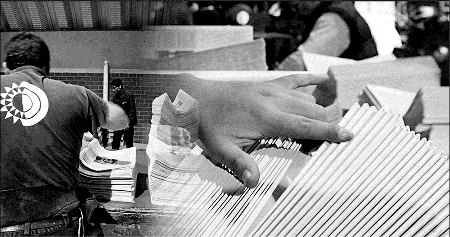August is usually a particularly unpleasant month for many moviegoers. With the school holidays, the commercial billboard is usually saturated (even more than in normal times) with superhero movies and other major Hollywood productions, reserving a very small space and little promotion for the films with the highest artistic quality that some distributors release drop by drop. . Precisely because of this scarce diffusion of alternative offers, there is a feeling during the end of summer that there is nothing new to see in the cinema and for this reason it might be preferable to stay at home, zapping the proposals of the digital platforms or venturing to one more season of a favorite series.
Fortunately, the feeling of coming across only artistic nullity when reviewing the billboards is misleading if one considers that other, more stimulating type of saturation offered by the alternative film circuit in several small theaters and especially in the very busy Cineteca Nacional . An eloquent example of this great diversity of cultural entertainment options is the parallel exhibition of a week of Japanese cinema, with very rare copies, some excellent, of classic films by Naruse, Mizoguchi, Yamanaka, Ozu, among others, and the traditional week of German cinema with very recent films, some awarded at international festivals. If we add to this the good programming during this month of the MicGénero festival and the Matatena children’s film festival, it is understood that it is impossible to assert, at this point, that there is nothing new in the panorama of exhibitions of good cinema or the lack of viewers, especially when a film like The only son (Yasujiro Ozu, 1936) is applauded at the end, in a full room, with a predominantly young audience. Something really remarkable.
A similar phenomenon of successful reception could give rise to the great variety of very suggestive titles offered by the German film week with a total of 16 feature films (12 fiction films, two documentaries and two children’s films), and short films and special screenings such as Nosferatu, a symphony of horror (FW Murnau, 1922), in an excellent restored copy and live music by the composer Julián Lede, a unique experience that should be repeated in a new space. Like every year, the program includes a film tribute to a German literary figure. Last year it was the turn of the writer, left-wing activist and exile in Mexico, Anna Seghers; this time, it is about the enigmatic writer B. Traven (for some of German nationality, for others, American), who also lived in Mexico, and from whom several works of fiction were brought to the screen. The cycle dedicated to it projects The treasure of the Sierra Madre (John Huston, 1948), the ship of death ( The Dead ShipGeorg Tressler, 1959 –premiere in Mexico), and three films by Roberto Gavaldón: Macario1959; autumn days1963, y White Rose1972.
The selection of feature films and documentaries this time revolves around the theme identities, as a symptomatic reflection of the moral crisis that Europe is experiencing, plagued by the proliferation of authoritarian political temptations, the product of often uncontrollable racist xenophobia. The tensions between a strong presence of immigrants and a local population that fears being demographically overwhelmed, if not replaced (according to the paranoia of a vociferous extreme right), feed more than one story, either explicitly or symbolically. Thus, in we might as well be dead (Natalia Sinelnikova, 2022), the neighbors of a huge housing complex make life impossible for the woman of Polish origin in charge of surveillance. Her response will be withering. In Prince (Lisa Bierwith, 2021), the 40-year-old protagonist succumbs to the sexual and amorous infatuation of a Congolese man, a mysterious diamond dealer, who shines sovereignly in her eyes, only to discover that she is the only maker of toxic illusions. Two well put together documentaries, behind the headlines (Daniel Andreas Sager, 2021), on the journalistic revelation of scandals of the Austrian government far-right, and Love, German marks and death (Cem Kaya, 2022), about the musical history of Turkish immigration to Germany, are added to a good program of interesting contrasts, whose functions conclude on August 21. Safety pin.
Synopsis, schedules and venues: www.goethe.de/cinefest y www.cinetecanacional.net
–


